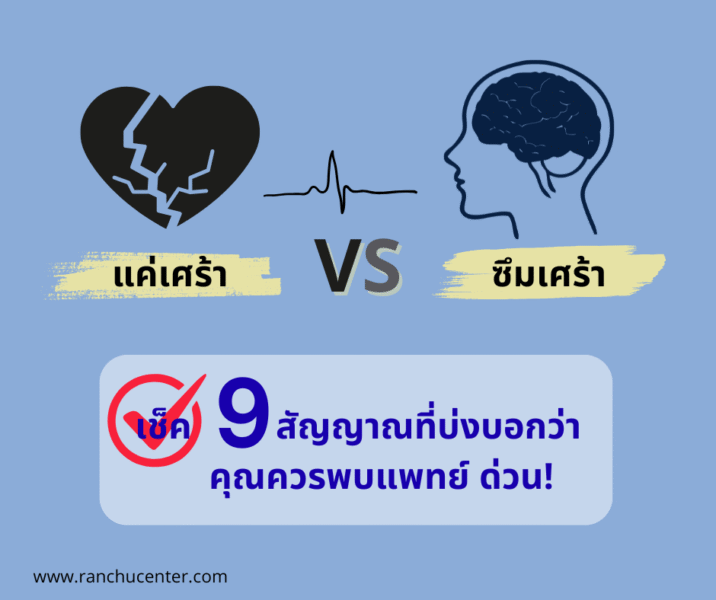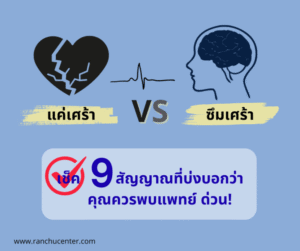Types of Therapy: A Comprehensive Guide to Mental Health Support
เวลาอ่านโดยประมาณ: 8 นาที
Key Takeaways
- Understanding therapy types helps in making informed mental health treatment choices.
- Traditional, innovative, and online therapies cater to different needs and preferences.
- Cognitive Behavioral Therapy (CBT) is highly effective for anxiety disorders.
- Online therapy provides accessible and flexible mental health care.
Table of contents
Understanding the various types of therapy is crucial for anyone seeking assistance with emotional, psychological, or behavioral challenges. Therapy encompasses a range of methods used by mental health professionals to help individuals address their concerns and improve their overall well-being. This blog post aims to compare various therapy types to assist readers in making informed choices regarding their mental health treatment. For in-depth insights on the significance of therapy, you may refer to our previous posts on the benefits of therapy.
It’s important to recognize that finding the best therapy for anxiety, depression, or other mental health issues often involves exploring different therapy options. By understanding the various types of therapy available, you can find the best fit for your unique needs. Now, let’s dive into the different categories of therapy and their applications.
อ้างอิง:the benefits of therapy
Overview of Types of Therapy
There are multiple types of therapy, and they can be categorized into three main groups: traditional therapy, innovative therapy, and online therapy. Each type serves distinct purposes and caters to different preferences and circumstances.
Traditional Therapy
Traditional therapy typically involves face-to-face sessions in clinical settings. This method allows clients to engage directly with their therapist in person. Common forms of traditional therapy include:
– Cognitive Behavioral Therapy (CBT)
– Psychodynamic therapy
– Humanistic therapy
– Family therapy
Traditional therapy works for a wide variety of concerns, including:
– Anxiety: Helps individuals understand and manage their anxiety triggers.
– Depression: Provides support and coping strategies to deal with low moods.
– Stress Management: Teaches relaxation techniques and behavioral adjustments to cope with stressors.
For more on understanding traditional therapy, check out our post on the role of therapists and psychologists.
อ้างอิง:the role of therapists and psychologists
Innovative Therapy
Innovative therapy includes non-traditional approaches, such as art therapy, music therapy, and play therapy. These methods often utilize creative expression to facilitate healing.
Innovative therapy can be particularly beneficial for individuals who find it difficult to articulate their feelings verbally. For example:
– Art Therapy: Provides an outlet for self-expression, helping individuals process emotions through creative materials.
– Music Therapy: Uses musical engagement to improve emotional well-being and reduce anxiety.
– Play Therapy: Primarily for children, it involves using play to communicate and work through emotional issues.
Discover more about these innovative techniques in our article on self-care tips.
อ้างอิง:self-care tips
Online Therapy
Online therapy has become increasingly popular, especially in the digital age. This method involves therapy sessions conducted over the internet through video calls, phone conversations, or text-based chats.
Online therapy provides accessibility and convenience, particularly for individuals who may be unable to attend in-person sessions.
– Anxiety Management: Individuals can connect with therapists from the comfort of their homes, which may reduce anxiety associated with travel.
– Flexibility: Clients can schedule sessions that fit their lifestyles, ensuring consistent support.
In fact, studies from the National Institute of Mental Health show the effectiveness of different therapy types, leading to improvements in conditions such as anxiety and depression (National Institute of Mental Health – https://www.nimh.nih.gov). To learn more about the benefits of online therapy, read our article on understanding online therapy benefits.
อ้างอิง:understanding online therapy benefits
Cognitive Behavioral Therapy (CBT)
One of the most widely recognized types of therapy is Cognitive Behavioral Therapy (CBT). This approach is structured and goal-oriented.
CBT focuses on identifying and altering negative thought patterns and behaviors. Key principles of CBT include:
– Cognitive Restructuring: Changing distorted thinking to improve emotional responses.
– Behavioral Activation: Engaging in activities to combat depression or anxiety.
– Problem Solving: Developing skills to tackle challenges effectively.
Research has consistently shown the effectiveness of CBT in treating various anxiety disorders. According to studies published by reputable sources, such as the Mayo Clinic, CBT is one of the most evidence-based therapies for mental health issues. CBT is especially effective for:
– Generalized Anxiety Disorder (GAD)
– Panic Disorder
– Social Anxiety Disorder
If you’re searching for the best therapy for anxiety, CBT is often recommended as a primary treatment option. For additional insights on anxiety disorders, please refer to our detailed post on understanding depression symptoms.
อ้างอิง:understanding depression symptoms
Therapist vs. Psychologist
When exploring types of therapy, it’s also essential to differentiate between various professionals providing these services, specifically therapists and psychologists.
– Therapists: This term encompasses various professionals, including clinical social workers, licensed marriage and family therapists, and mental health counselors. Therapists typically have varying levels of training, from master’s degrees to specialized certifications.
– Psychologists: Psychologists usually hold doctoral degrees (Ph.D. or Psy.D.) and are qualified to conduct psychological assessments and evaluations. They often provide therapy as well but can also perform tests to better understand a patient’s mental health.
Deciding whether to see a therapist or psychologist depends on several factors, including:
– Severity of Issues: If you’re dealing with severe psychological challenges, a psychologist’s expertise may be necessary.
– Need for Diagnosis: Psychologists can provide diagnostic assessments, while many therapists focus primarily on therapeutic intervention.
– Personal Preferences: Your comfort with the professional style and personality may also guide your choice.
Ultimately, understanding the differences in the therapist vs. psychologist debate can help you choose the right provider for your needs.
Online Therapy Benefits
With advancements in technology, online therapy has gained popularity and accessibility. Online therapy involves therapy sessions conducted via the internet, allowing clients to connect with their mental health professionals without attending traditional face-to-face sessions. This method accommodates various formats, including video calls, phone consultations, and even text therapy.
The benefits of online therapy include:
– Accessibility: Ideal for individuals living in remote or underserved areas where mental health professionals are scarce.
– Convenience: Offers more flexibility for scheduling appointments, making it easier to fit therapy into busy lives.
– Lower Costs: Online therapy often costs less than traditional therapy due to reduced overhead for therapists.
According to studies from the American Psychological Association, many individuals report positive outcomes from online therapy, making it an effective option for various mental health concerns (American Psychological Association – https://www.apa.org/monitor/2020/06/online-therapy). For more information, check out the post on understanding mental health issues.
อ้างอิง:understanding mental health issues
Comparison of Therapy Types
When considering therapy options, a comparison of the types of therapy can highlight key features of each method.
Cognitive Behavioral Therapy (CBT)
– Pros:
– Evidence-based approach
– Structured and goal-oriented
– Cons:
– May not address deeper emotional issues
Traditional Therapy
– Pros:
– Personal connection with the therapist
– Variety of methods (CBT, humanistic, etc.)
– Cons:
– Scheduling challenges for in-person visits
Online Therapy
– Pros:
– Convenience and flexibility
– Lower costs
– Cons:
– Limited personal interaction
– Requires reliable internet access
Understanding these aspects can help you make an informed decision based on your unique situation and preferences.
สรุป
In summary, understanding the different types of therapy available is essential for individuals looking to improve their mental health. With various options—each with its strengths and weaknesses—knowing your needs can empower you to take control of your mental health journey.
Whether you consider traditional therapy, innovative methods, or online therapy, it’s vital to reflect on your personal circumstances and preferences to find the best fit. Proactive steps in seeking support and making informed decisions can pave the way for a healthier, happier life. Additionally, for a closer look at the nuances of therapy options, explore our post on self-care tips for enhanced overall well-being.
อ้างอิง:self-care tips
































